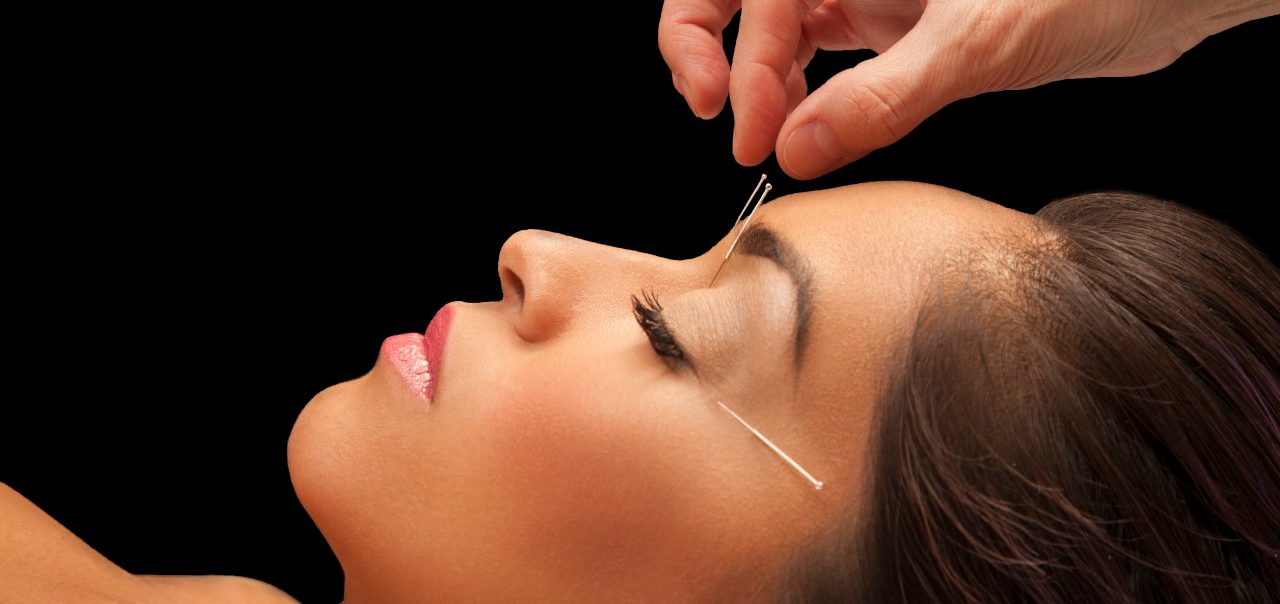Acupuncture for Weight Loss

Unconventional weight loss strategies are usually fads, but the buzz about acupuncture for weight loss may turn out to contain some truth. Here’s what you should know.
There are no large, controlled, randomized studies backing the idea of acupuncture for weight loss.
So why the buzz?
Here’s what we know:
There are two points in the ear traditionally associated with appetite. A 2017 review found 18 randomized controlled studies of ear acupuncture for weight loss, though not big ones — the largest had 200 subjects. Most of the volunteers were middle-aged Asian women. All in all, this review concluded that ear acupuncture was linked to an average loss of about 3 lbs. Treatments that went on longer than six weeks had the best results.
YOU MIGHT ALSO LIKE: Acupuncture for Menopause May Ease Symptoms
Weight loss science is buzzing with research linked to the microbiome, the bacteria that live on or in your body, usually your guts. Bacteroidetes may be the bad-guys, and one study found that acupuncture reduced them. Forty-five overweight or obese women in Shanghai were randomly split into three groups, including a control group that got no treatment. The other two groups received 20 acupuncture treatments focused on the abdomen for a half-hour, every other day. The points were the same for both groups, but executed by different doctors.
The results: In the 30 women who received acupuncture, the average BMI dropped from close to 28 at the beginning to a bit over 25, while the control group didn’t change much. Also, the team found the favorable changes in the gut flora in the treated groups but not the controls. Despite all the press about probiotics, we don’t yet have reliable ways of changing our gut flora.
There is some data suggesting that electroacupuncture is more effective than needles alone for weight loss, according to another overview.
How does acupuncture work? The first written account of acupuncture dates to 100 B.C. in China. According to traditional Chinese medicine, the needles prompt the body to release a flow of energy, called “qi,” which travels through “meridians.”
By the early 20th century, doctors at the Chinese Imperial Medical Academy no longer studied acupuncture. Mao revived it as cheap solution for an underserved population.
Western research has found acupuncture moderately effective to treat pain, better than sham acupuncture in which the needles don’t pierce the skin, for example. The Western explanation: the needle stimulates a nerve, which sends a signal to the brain to release beta-endorphins. These are the feel-good chemicals that lower pain thresholds. Another theory has it that acupuncture changes cells in connective tissue around the pressure points in lasting ways that lead to less pain.
But these explanations don’t address why needling in your ear would affect your appetite or your gut flora.
Remember that keeping the weight off is the biggest challenge, which weight-loss studies don’t address. You’ll still need to consume fewer calories — long-term. If acupuncture relaxes you and reduces pain, that’s a plus. Being anxious can lead to overeating — as too many of us discover for ourselves! Also, if you ever skip exercise because of a pain issue, acupuncture could help keep you moving. In addition, there’s some evidence that acupuncture lowers inflammation, which is related to both pain and obesity.
YOU MIGHT ALSO LIKE: Tell Your Doctor What You’re Doing to Manage Pain
Updated:
April 09, 2020
Reviewed By:
Janet O’Dell, RN